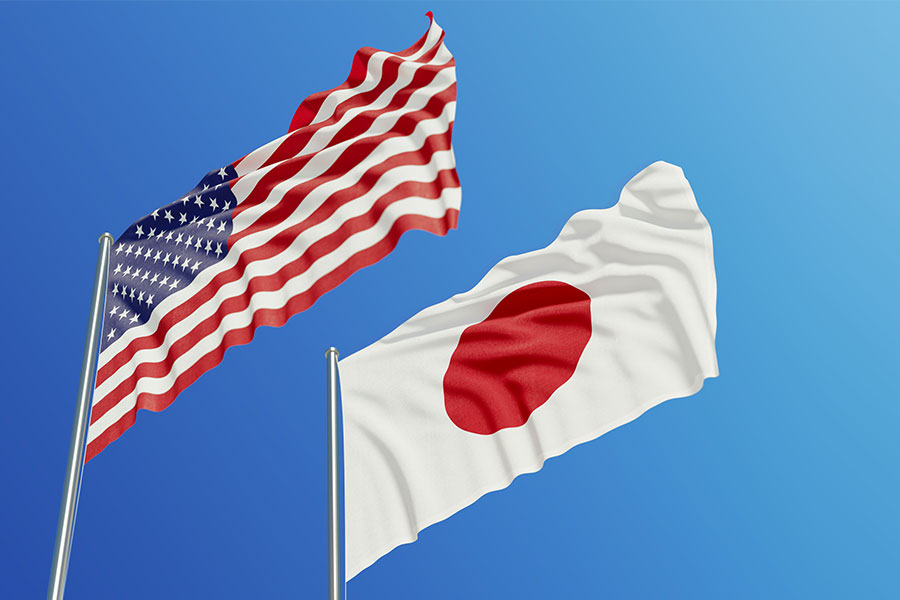Japan, the United States, and the Future of World Order

On March 24th and 25th, the Kissinger Center for Global Affairs at Johns Hopkins SAIS hosted a two-day workshop entitled “Japan, the United States, and the Future of the World Order.” The workshop sought to evaluate the impacts of the changing world order on Japan, the United States, and their allies by bringing together experts and scholars from both nations.
The first day of the workshop began with a discussion with Dr. Kurt Campbell, Assistant to the President and Coordinator for Indo-Pacific Affairs on the National Security Council, moderated by The Honorable James Steinberg (Syracuse University). The discussion focused on the increasing importance of East Asia in foreign policy, the need for the Biden administration to work with allies to address challenges in the region, and the role for Japan in the region and how it fits into the administration's strategy.
During the second session, chaired by Dr. Saori Katada (University of Southern California), Dr. Yuichi Hosoya (Keio University) discussed the shift in Japan’s grand strategy from the Yoshida doctrine to the Free and Open Indo-Pacific Vision. In the same session, Ambassador Robert Zoellick (Harvard Kennedy School) talked about the tensions within the current world order, the rise of China within the world order, and the role for Japan as the Biden administration crafts its foreign policy in Asia.
In the last session of the night, chaired by Ms. Emma Chanlett-Avery (Congressional Research Service), Dr. Hal Brands (Johns Hopkins SAIS) elaborated on the rise of China and proposed that history suggests that China will face significant obstacles as it continues to try to expand its influence. Dr. Michael Green (Georgetown SFS) discussed the importance of Japanese strategy in shaping American strategy in East Asia and the history and importance of Japanese and American maritime strategy in addressing the rise of China.
The first session on the second day of the workshop, chaired by Dr. Zach Cooper (AEI), Dr. Jennifer Lind (Dartmouth College) explaining the potential security strategies Japan could undertake as a result of China’s increased assertiveness in the region. Ambassador Kenichiro Sasae (Japan Institute of International Affairs) addressed the Chinese threat to democratic governance worldwide and argued that the United States, Japan and its allies should engage in a proactive defense of democracy. Lastly, Dr. Steinberg examined Japan’s core objectives and how Japan could play a more active, independent role in regional and global affairs in order to meet those objectives.
The last session of the workshop, on the future of world order, was chaired by Dr. John Ikenberry (Princeton University). Dr. Francis Gavin (Johns Hopkins SAIS) argued that, while past conflicts were a result of scarcity, the current world order is characterized by “problems of plenty,” and that countries with institutions that allow for adaptability and flexibility will be best off in a changing world. Dr. Mireya Solís (Brookings) discussed the tensions between economic internationalism and security in East Asia and how Japan should shape its economic policy if it wants to preserve an open, rules-based international order. Lastly, Dr. Satoru Mori (Hosei University) spoke on how the United States, Japan, and their democratic allies could undertake order management in the face of the challenge posed by China by enhancing their interdependence and boosting the legitimacy of liberal democracy both at home and abroad.
Day One: